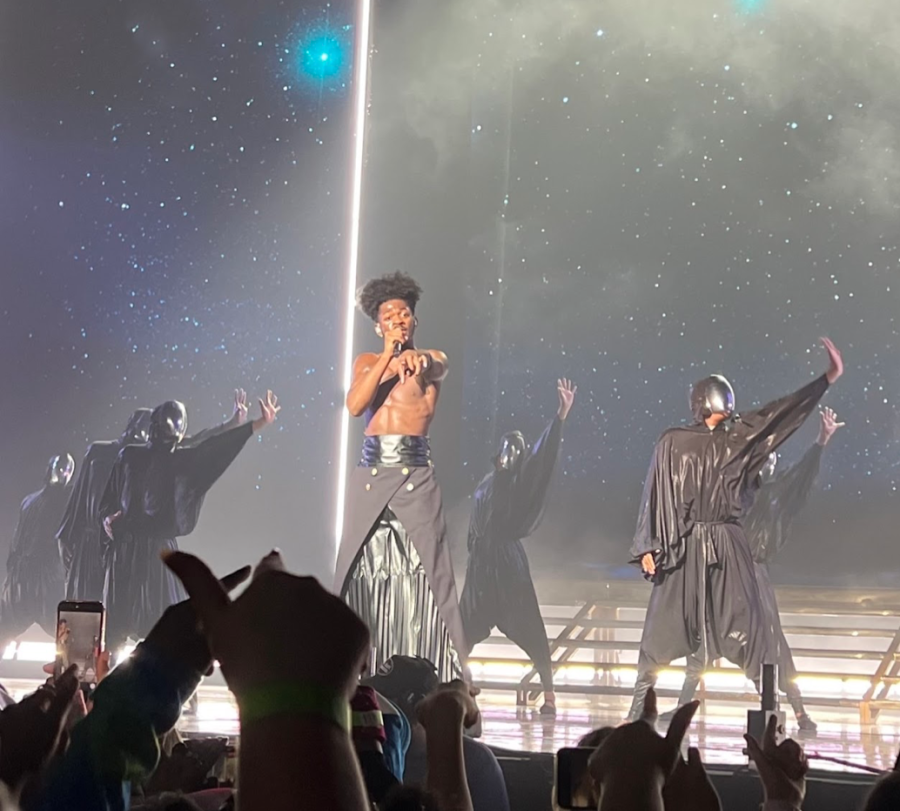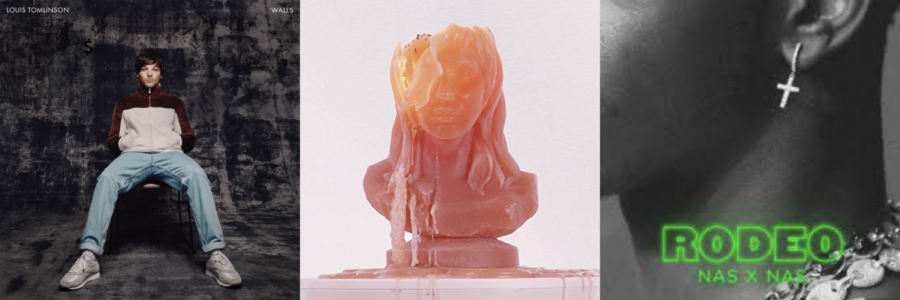Earlier this month, Lil Nas X arrived at the Met Gala in glistening all-gold metallic armor reminiscent of C-3PO. It was a statement that, though unrelated to music, illustrates very well the 22-year-old rapper’s place in our current hip-hop pantheon: he’s a radiant golden torch amidst a whirlwind of suits and ties, someone who’s pushing the old out of the limelight and ushering in the new—much to the dismay of figures ranging from Boosie Badazz to Billboard.
Though “Montero,” released this past Friday, is his debut full-length project, it certainly is not his debut foray into public discourse. He has long challenged status quos in popular culture—his first song ever literally fueled a national debate over the racial implications of country music—with split reception across the globe. Although the term “controversial” has lowkey become a euphemism for “stupid” in recent years, Lil Nas X grew to embody its full definition: giving rise or likely to give rise to public disagreement.
At first, controversiality was something he shied away from.
“I never want my name to be more hot because of controversy than my music,” he told NPR, following the 2019 release of “Old Town Road.” “It’s like a blessing and a curse.”
But in the months leading up to “Montero,” he took full control over his like-it-or-not approach. At some points, he seemed to relish in pushing the buttons of his haters—whether via clever Twitter clapbacks, far-out music videos or equally far-out nationally televised performances. For every admonishment the critics would condemn him with from afar, he appeared to be saying, his supporters would love him even more than they did prior. And this made both those who despise him and those who cherish him do so to the highest possible extent.
A long-awaited climax to such antics, “Montero” is a snapshot of a man who knows his power. Lil Nas X wields the jurisdiction to simultaneously divide and unify, flatter and infuriate, challenge the system and climb to its peak. Depending on how you feel about him, either the most terrifying or exciting thing about a listen to “Montero” is that he is fully aware of not only what he is doing, but what he is capable of. Whatever his effect on you, positive or negative, you’re in for a lot more of it.
This is a prospect that is rubbed into your face throughout “INDUSTRY BABY,” one of three promotional singles released ahead of the LP. There is a skip-hoppy cadence to the song that evokes “Old Town Road” before the lyrics even begin; the sonic feeling throws one instantly back into a revisitation of Lil Nas X’s humble beginnings. Once the lyrics actually do start, though, it is quickly made clear that the only thing that hasn’t changed since those days is the rapper’s defiance. He’s gotten around to quite a bit since 2019—in his own very simple words: “Couple racks, ayy / Couple Grammys on him / Couple plaques, ayy.” Two years ago, Lil Nas X was singing from the void. Now, he’s singing from the mountaintop.
But that doesn’t mean there aren’t valleys. There are several tracks on “Montero” that show a more somber, introspective version of Lil Nas X often omitted from the cameras. Among the most profound of these vulnerable moments is the album’s 11th track, “SUN GOES DOWN.” In place of the blaring, make-your-landlord-angry instrumental sections upon which he built his brand, there is a wistful acoustic backing that is practically the antithesis of his longtime musical approach. Rather than offer catchy boasts about how he acquired his status by embodying his identity, he opens up in depth about the struggles eclipsed by his showmanship, for what appears to be the first time.
“Since ten, I’ve been feelin’ lonely,” he says in the song’s first verse. “Had friends but they was pickin’ on me. Always thinkin’, ‘Why my lips so big? Was I too dark? Can they sense my fears?’”
The same way that there are emotional valleys across the LP, there are structural ones as well. By technical measures, every song on “Montero” is conventionally good: there is no shortage of catchy hooks, foot-tapper instrumentals nor radio candy. But by the time you hit “LOST IN THE CITADEL”—another conventionally good song that would make teenagers go buck wild at the Super Bowl halftime show (@NFL, *hint hint*)—you begin to feel like you are trapped in a grocery store, lagging behind your mother in the toiletries aisle as the same five songs play over and over again on the intercom. Lil Nas X is early enough in his career for there to be leeway afforded to a repetitive approach; he loves to make hits, and the radio loves to play them. But what will be interesting to watch as his discography unfurls is how, if at all, he chooses to diversify his sound—and what that may mean for his success.
“Montero” seems to be split between two opposite sides—outgoing and introspective—of an artist we spent so much time thinking we knew so well. It’s a sturdy debut LP that takes controversy, makes it catchy and throws it back into the faces of the public. In an era where controversy has spelled the end for many across creative disciplines, Lil Nas X’s ability to wield it to his own advantage is a rare spectacle that is fun to watch on TV, listen to through headphones and smile about at the Met Gala.












